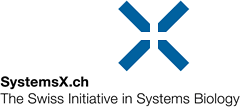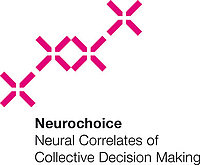Neurochoice
Neural Correlates of Collective Decision Making
Who has never been in the difficult situation of trying to take the best decision, weighing up the positive and negative aspects of each option and sometimes obliged to take some risks? Decision-making is a highly relevant activity and is currently a prominent research subject worldwide. Decisions of individuals and groups of individuals about their actions can be traced back to neuronal activity on multiple levels, ranging from molecules, cells and cellular networks to entire areas of the brain.
With a broad repertoire of electrophysiological, imaging, pharmacological and behavioral methods, Neurochoice investigates neural correlates of decision-making in the brain and manipulates the collective network dynamics at all levels. The approach of Neurochoice includes experiments in both humans and rodents in an attempt to bridge the gap between laboratory animal studies and fMRI studies in humans as carried out in neuroeconomics. Theories of neuronal population dynamics, learning, synaptic plasticity and economic games, are used as a framework to explain the different experimental observations and link the multiple levels. Particular emphasis is given to the development of new technologies for a comprehensive imaging of large-scale neural network activity and for perturbing networks dynamics and biasing decisions on the intermediate scale.
Neurochoice aims to gain fundamental insights into basic neural mechanisms as well as a detailed understanding of some of the most prevalent brain diseases, such as depression or addiction.
| Principal Investigator | Prof. Fritjof Helmchen, Brain Research Institute, University of Zurich |
| Involved Institutions | University of Zurich, University of Bern, EPF Lausanne, University of Geneva |
| Number of Research Groups | 10 |
| Project Duration | Sept. 2008 - Dec. 2012 |
| Approved SystemsX.ch Funds | CHF 6.601 million |
Updated September 2012


